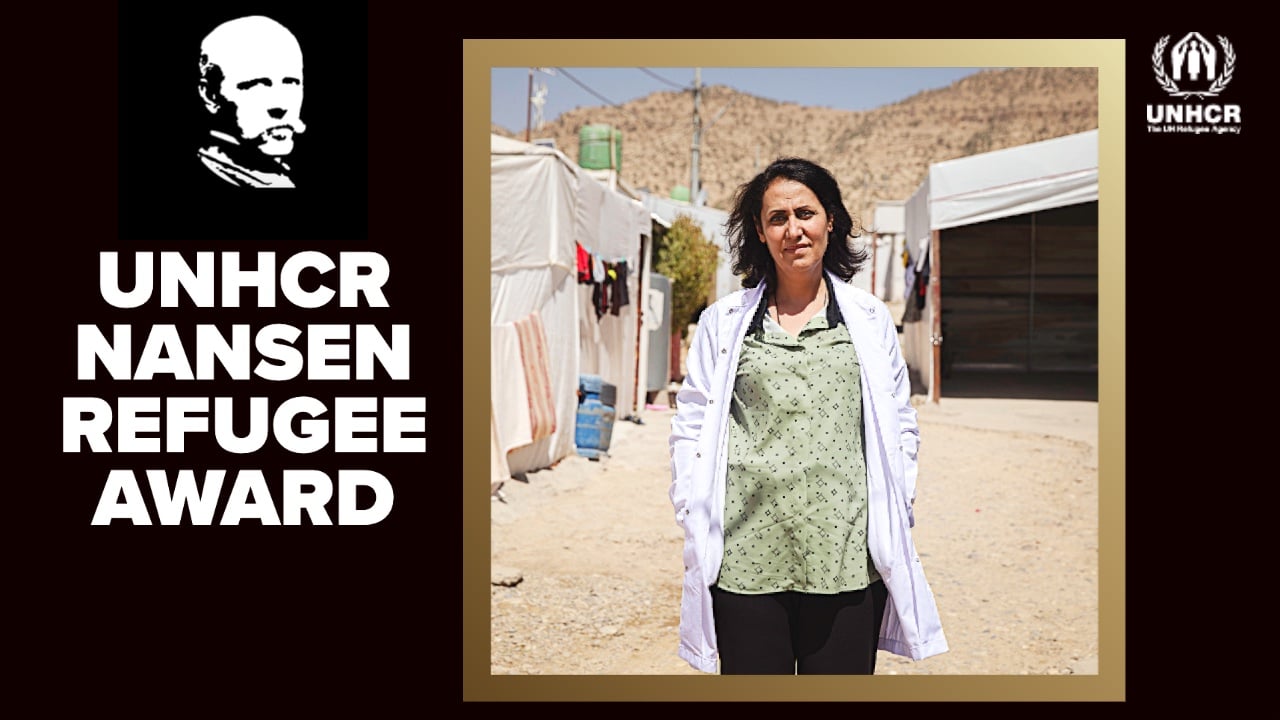UN Humanitarian Briefing on Iraq
UN Humanitarian Briefing on Iraq
An inter-agency mission has received permission from the Iranian refugee agency (BAFIA) to cross the border from Mehran, Iran on Monday to visit a group of displaced Iraqis estimated at more than 30,000 persons who reportedly fled Baghdad and Nasiriya last week as anarchy raged in their communities.
Representatives of the Iraqis who spoke to UN refugee agency staff at the Iranian border last Thursday said that they so far did not want to cross into Iran, but did need humanitarian aid. Up to 80 percent of the displaced Iraqis are Kurds, they told UNHCR.
A UN refugee agency security adviser, accompanied by staff from other relief agencies, plans to drive to Badrah, 16 kilometres from the Iranian frontier, on Monday to first evaluate the area's stability.
The mission had intended to visit Badrah today (Sunday), but only received permission from Iran to cross tomorrow.
If the UN visit early Monday deems that Badrah is stable, aid workers from a variety of relief agencies, including Unicef, the UN World Food Programme (WFP), the International Organization for Migration (IOM), and the UN Office of the Coordinator for Humanitarian Affairs (OCHA) will then go into Badrah and determine what kinds of assistance the tens of thousands of displaced Iraqis need.
Relief items from aid agency stockpiles in Kermanshah, Iran would then be dispatched to Badrah to help the thousands of Iraqis who reached the area a week ago.
While meeting with the Iraqis at the border last week, UNHCR staff saw relief items being ferried over the border for the people at Badrah, including 2,000 packs of bread each containing 70 loaves, 7,000 cans of beans, 500 kg of dates. There were also four water tankers setting out for Badrah.
The medical relief agency Médecins du Monde (Canada) visited the displaced Iraqis at Badrah on Saturday after crossing over from Iran. They could not get an accurate picture of exactly how many people are encamped there during their short visit together with Iranian officials, but said that everyone they met asked for water and food aid.
The hospital in Badrah was reported to be "overflowing", the MDM-Canada team said. It was not clear if the facility's patients were wounded, or simply ill.
Many of Badrah's displaced Iraqis reportedly said that they were also considering returning back to their communities, though about half the group appeared so far unwilling to go back to their homes due to their concerns about lawlessness and unrest in parts of Iraq.
On Iraq's western border, more than 90 persons are now encamped in difficult, windswept conditions at the Al Karama border crossing with Jordan.
Among those stuck in the no-man's-land separating the Jordanian and Iraqi border posts are seven Iraqi refugees, including one man who has been at the site for more than a week waiting to enter Jordan.
Also waiting for admission to Jordan is an Iraqi man and his two children who have been in the desolate no-man's-land since 7 April after fleeing Iraq when the man's wife and one son were killed during the bombing campaign.
The UN refugee agency is seeking permission from the Jordanian government to move the people perched on the border to the camps at Ruwaished on a temporary basis, but has so far not received a response. UNHCR has established a 24-hour presence at the frontier in order to monitor the humanitarian situation of the scores of people waiting there.
The no-man's-land at Al Karama lacks appropriate conditions to shelter people on a long-term basis, though tents have been erected by UNHCR and the Red Crescent.
Jordan has so far admitted six Iraqi refugees since the war began on 20 March.
Four Palestinians are also at the no-man's-land site seeking the safety and protection of temporary asylum in Jordan.
By far the largest group now encamped at Jordan's Al Karama border post are more than 70 Iranians, both men and women, all apparently recognized refugees with documents from France, Germany, Canada, the USA and other countries. They say they want to return to the countries that originally granted them refugee status.
Syria's population of Iraqi refugees now stands at more than 158 persons, including 91 Iraqis currently in UNHCR's El Hol camp in the north-east of the country, and 67 Iraqis - all recent arrivals - at the Abu Kamal transit centre.
The International Organization for Migration, which handles transport, plans to start shifting some of the 67 newly arrived Iraqis today (Sunday) from the Abu Kamal transit centre to El Hol refugee camp.
Also at Syria's Abu Kamal border crossing with Iraq are 30 Iranians. Similar to the group stuck at Jordan's frontier with Iraq, these Iranians also want to transit Syria and to return to the states that initially granted them asylum in the late 1970s/early 1980s.








